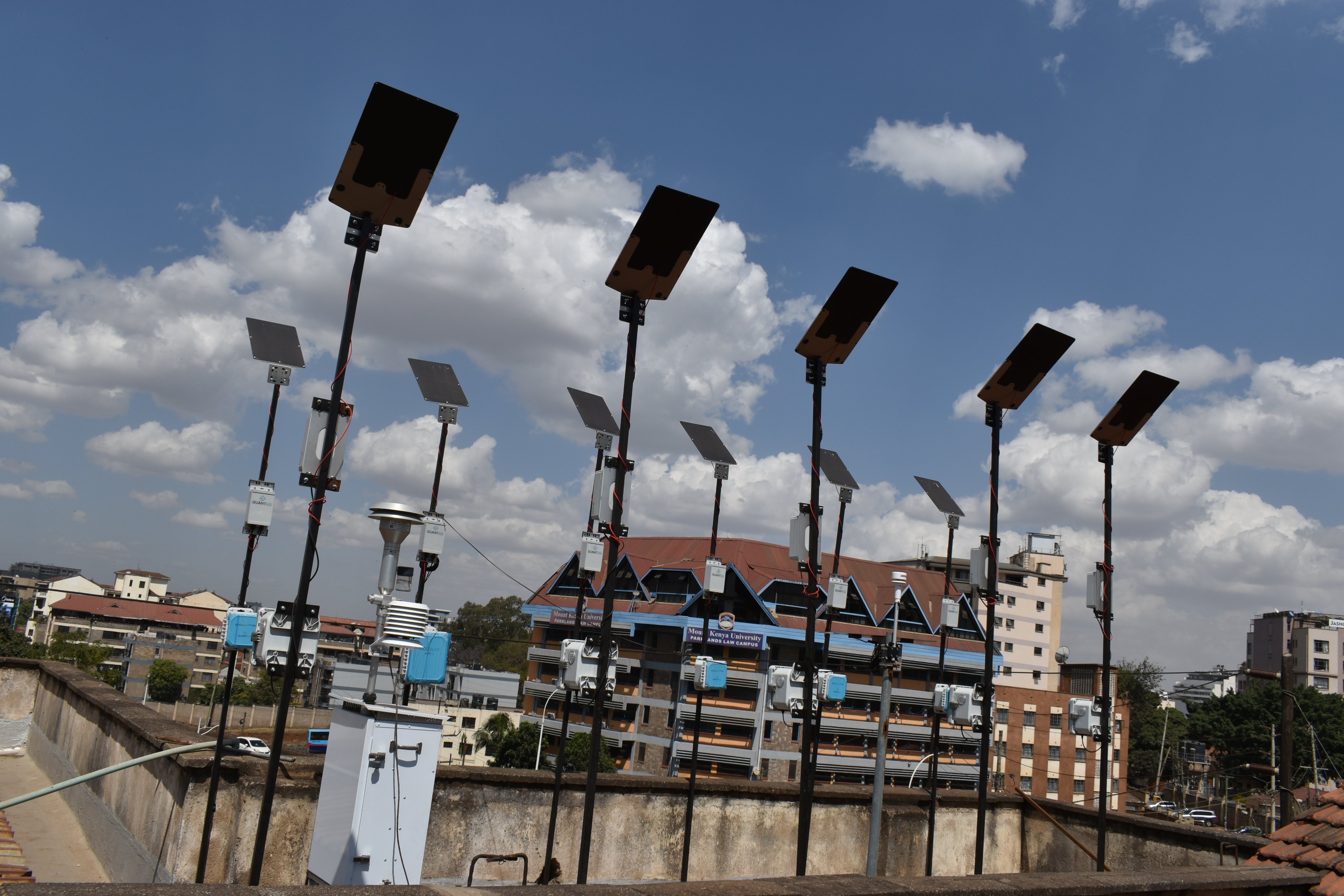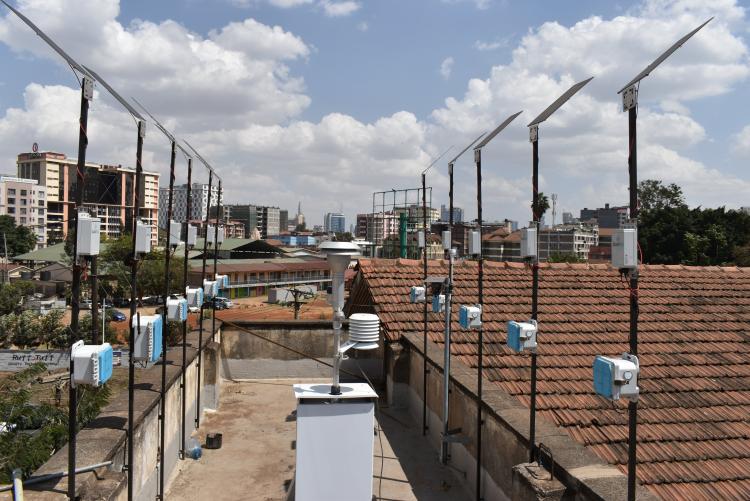Professor Nicholas Oguge from the Faculty of law - Centre for Advanced Studies in Environmental Law Policy,(CASELAP) has highlighted the urgent issue of air pollution in East African cities. He emphasized that air pollution primarily stemmed from human activities, including mining, construction, transportation, industrial operations, agriculture, and the burning of waste, alongside natural factors such as windblown dust.
Prof. Oguge further highlighted an important distinction between pollutants in the air; firstly as gases e.g greenhouse gases that contribute to global warming, and secondly as particles suspended in the air, (particulate matter). He also provided crucial air quality data, highlighting Nairobi's comparatively lower pollution level at 19 µg/m3, as opposed to Kampala (39 µg/m3) and Addis Ababa (42 µg/m3). He attributed Nairobi's relatively better air quality to the presence of green spaces like forests and parks, such as the Arboretum, City Park, Karura Forest, Ngong Forest, and Nairobi National Park, which acted as natural air purifiers. Nevertheless, within Nairobi, pollution levels varied, with the Central Business District recording the highest at 35 µg/m3 and the Karen area the lowest at 10 µg/m3.
A common trend shared among East African cities, as pointed out by Professor Oguge, was the density of air quality during morning and evening rush hours when heavy traffic released large amounts of carbon emissions into the atmosphere.
Prof. Oguge underscored the grave health implications of exposure to polluted air, including respiratory infections, heart disease, lung cancer, severe asthma, hospitalizations, and premature deaths. The burden of air pollution-related diseases in sub-Saharan Africa surpassed the global average, with over 5,000 premature deaths annually in Kenya due to outdoor air pollution.
A study by the United Nations Environment Programme (UNEP) underscored the severity of air pollution in Africa, with 1.1 million deaths attributed to it. Household air pollution, mainly caused by indoor cooking stoves, accounted for a significant portion of these fatalities. Notably, air pollution ranked as the second leading cause of death in the region, surpassing tobacco, alcohol, road accidents, and drug abuse, with only HIV/AIDS causing more deaths. The report further linked air pollution to lower respiratory infections, heart disease, neonatal disorders, chronic obstructive pulmonary disease, stroke, and adverse effects on intellectual development in children.
In 2022, at a stakeholder engagement workshop on Air Pollution at the University of Nairobi, Professor Oguge and Global Environmental and Occupational Health (GEO) UoN team, presented findings on spirometry tests conducted on school-aged children. These tests revealed that 90% of participants had normal chests, with a slight majority being female.
The University of Nairobi is an integral part of the GEO Health consortium, funded by the National Institute of Health (NIH) of the USA, collaborating with other institutions across Eastern Africa. Their research on air quality, respiratory outcomes, and the impact on children's health has had far-reaching implications. The Kenyan Centre for GEOHealth based at the University of Nairobi, with the monitoring equipment set up at the Faculty of Law

(Air quality monitoring/collocation site at The University of Nairobi, Parklands Campus)
The University of Nairobi's GEO Health team, in partnership with the Kenya Air Quality Network (KAQN), further released findings from their research on ambient air quality and associated respiratory outcomes among lower primary school-going children in various zones of Nairobi. Their work also facilitated collaboration and capacity building among different entities. Nephelometers installed in primary schools collected crucial air quality data for this study.
In summary, Professor Nicholas Oguge, along with the University of Nairobi and its collaborators, are at the forefront of research and advocacy to address the critical issue of air pollution in East African cities. Their efforts include measuring pollution levels, studying its health impacts, and advocating for policies to improve air quality and protect the well-being of the region's residents.

